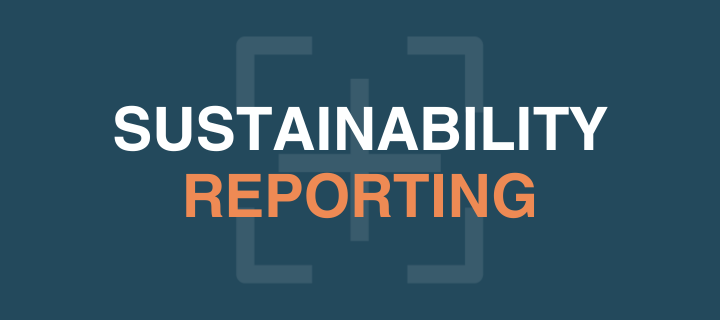Do your financial statements really give a true and fair view?

The principle of “true and fair” is fundamental to financial reporting – yet its application within the sustainability context is often overlooked.
Do you ever look at your financial statements and think, “the numbers look fine…but something feels missing”? Maybe the profit line is steady, but you know rising energy costs or new carbon tax regulations are just around the corner. Or perhaps you rely heavily on pollination for agriculture, yet these services from nature come for free and the value of these natural assets are not recognized in the accounts. So ask yourself again: are your accounts really telling the full ‘true and fair’ story, or just the easy one?
Directors have a statutory duty1 to ensure the financial statements present a ‘true and fair’ view of the company’s financial performance and position. A legal opinion commissioned by Social Value International (SVI) reminds company directors that they need to ‘exert themselves’ with proper care and due diligence to ensure their financial statements are true and fair, and cannot simply rely on their having delegated responsibility. Crucially, this opinion confirms that the true and fair requirement actually overrides generally accepted accounting standards. In other words, an organization can, and should, depart from accounting standards where necessary to present a true and fair view. This includes consideration of material social and environmental information – such as emerging risks, as well as the opportunities inherent in the transition to a sustainable economy. But clearly, putting this into practice isn't straightforward.
At the A4S Summit 2025, we hosted a roundtable discussion on this statutory duty, in partnership with Social Value International (SVI). It brought together accounting and finance professionals to explore the true and fair requirement further, unearthing some of the challenges directors face when applying this to their financial statements.
Here are some of the main things that emerged.
Lack of clear process
Review and sign-off processes for financial statements generally don’t have a clear process (or specifically allocated time) for directors to assess whether the accounts really reflect a true and fair view. This lack of common process makes it difficult for directors to navigate between compliance with accounting standards, achievement of fair presentation and avoidance of greenwashing. Tight deadlines in review and sign-off makes this harder, by limiting the time for meaningful stakeholder engagement on risk identification, assessment and mitigation. Directors need a practical, well-defined review and sign-off process that shows clearly how financial statements meet both compliance and fair presentation requirements. The process should build in early risk identification, transparent documentation of key judgements, and sufficient time for stakeholder dialogue, thereby reducing time pressures and the risk of weak oversight.
Even with the existing reporting obligations, this isn’t an area that has been front of mind for many directors and auditors, with a widely held (and not unreasonable) assumption that by following accounting standards a company is therefore presenting a true and fair view. In practice, this is not necessarily the case, and professional judgement is needed to determine whether further disclosures are necessary, even if not explicitly required by the standards. The legal opinion commissioned by SVI reinforces this principle, highlighting directors’ obligation to apply an enquiring mind and “apply themselves with proper care and due diligence”. While it may not be instinctive to many directors and auditors to deviate from accounting standards, the Financial Reporting Council (FRC), emphasizes the need for “additional disclosures when compliance with an accounting standard is insufficient to present a true and fair view”.
As practice in this area evolves, we may start to see an increase in qualified audit opinions. But any increase in qualified opinions needs to be recognized as a short-term response to a transition towards more transparent, decision-relevant disclosures. At the same time, users of the financial statements need to have greater awareness and understanding of how to interpret these opinions. Accounting bodies also have a role in supporting and encouraging these disclosures where necessary.
Relevance of risk and risk registers
To incorporate environmental and social risks effectively into financial statements, they need to be treated similarly to financial risks, where their management and disclosure are seen as essential for presenting a true and fair view. This requires an integrated, systems-based approach that recognizes the interconnectedness of sustainability-related risks. For instance, focusing on climate-related risks in isolation can mean that more systemic, material risks could be overlooked.
And while some risks may not be financially material, they can still be considered material by nature (such as the risk of human rights violations) and should therefore be included if the risk is material. The challenge lies in the limited guidance on what and how sustainability-related risks should be included within risk registers and in external risk disclosures. This means that many potentially material risks are not receiving the necessary attention – firstly to determine if they are indeed material, and secondly considering what should be disclosed in relation to them. By acknowledging this and upskilling finance teams accordingly, risk registers can be a valuable tool to identify, prioritize and disclose the social and environmental risks a company is exposed to, and therefore support a true and fair view.
Forward-looking considerations and investor engagement
Directors can often place greater focus on reporting of historical performance over future forecasts – a bird in the hand is worth two in the bush, as it were. Although management accounts are more forward-looking than financial statements, they still do not tend to capture adequately the financial effects of future sustainability risks. This, coupled with the short-term focus on financial returns of many investors, often leads to neglect of mid- to long-term sustainability-related risks and opportunities in favour of immediate returns. This short-term focus limits meaningful investor engagement on how companies identify and address emerging sustainability-related risks and how they identify and respond to opportunities for long-term value creation. Committed long-term investors have a critical role to play in challenging directors on the identification and management of risk. By assessing portfolio externalities, investors can guide companies in understanding what is material to disclose, helping to ensure a true and fair picture.
Addressing these challenges requires a systemic shift. Investors, auditors and wider stakeholder groups all need to engage with companies to ensure the inclusion of material environmental and social information that is necessary to provide users with a true and fair view of the company’s financial position and performance – this is not just the statutory duty of the company directors, but an inferred duty of all users.
SVI and A4S are extending this work further, looking beyond company directors to incorporate the views and responsibilities of wider stakeholders around the true and fair requirement. In the meantime, you can see SVI’s guidance supporting company directors in their application of the true and fair requirement. For further information you can read the legal opinion commissioned by SVI, including recently published research on the true and fair requirement under the EU Directive.
Important information
This blog has been prepared for general guidance on matters of interest only and does not constitute professional advice. We recommend obtaining specific professional advice before acting or refraining from action on any of the contents of this blog. Accounting for Sustainability accepts no liability for any loss occasioned to any person acting or refraining from action as a result of any material in this blog.
- This is a statutory duty under the UK Companies Act 2006, section 393(1). While the ‘true and fair’ requirement is a feature of UK company law, many other jurisdictions impose equivalent obligations, often expressed as a requirement for financial statements to “present fairly” or provide a “faithful representation”.





